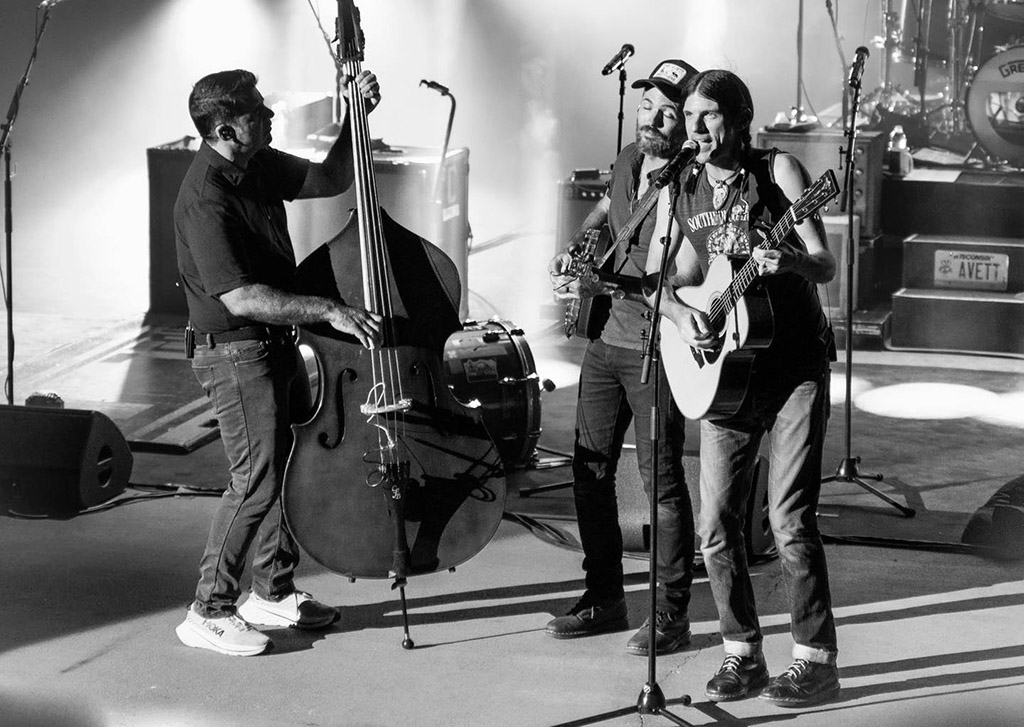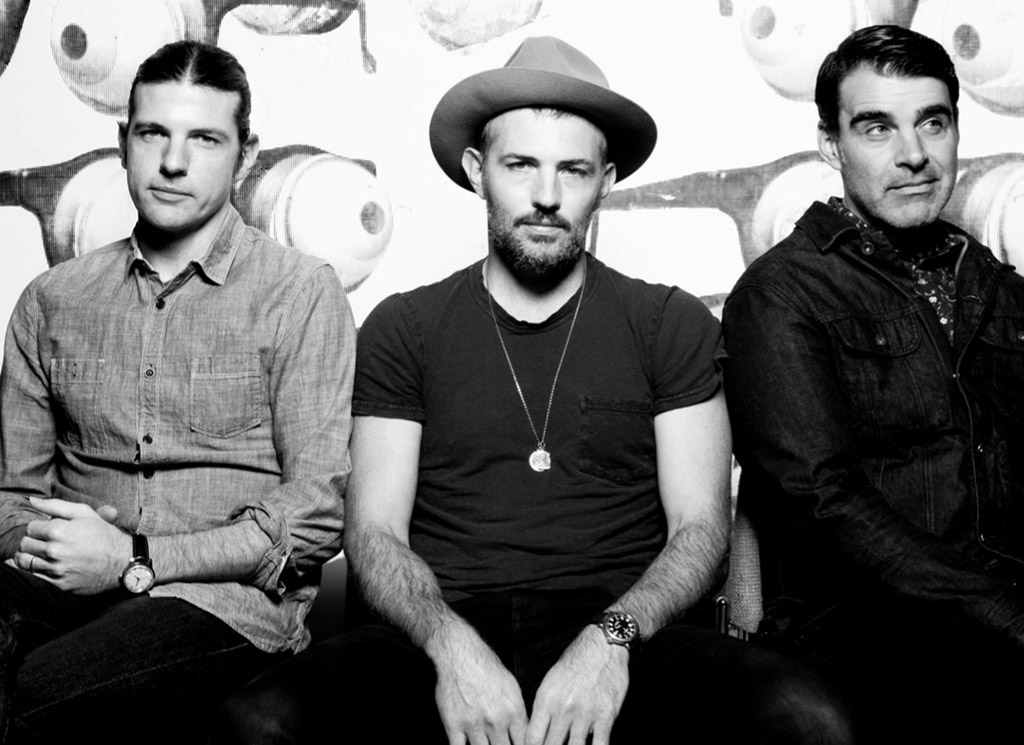Music, in its boundless ability to touch the human soul, is often touted as the universal language. Its nuances transcend boundaries, cultures, and political ideologies. For Seth Avett, one half of the acclaimed folk-rock duo The Avett Brothers, this quality of music is its most powerful trait. In a recent candid conversation with me, Avett reflected on the power of art, his Southern roots, and the urgent need for unity amidst our divided times.
Avett’s reflections on their music give us a fresh perspective on their discography. We see a band willing to evolve and take risks, yet staying true to their roots. The Avett Brothers, much like their music, embody a complex mix of constants and variables. In an ever-changing world, they manage to maintain their authenticity while adapting to the times.
One of the core themes of the conversation was the impact of Avett’s Southern roots on his music. The brothers hail from North Carolina, a place that, according to Avett, “is incredibly diverse.” He suggests that the environment around us and the era we live in shape who we are and, by extension, what we create. The brothers’ music, then, is a reflection of their Southern upbringing — the slow-paced life, the vast stretches of land, the tradition intermingled with progressiveness.
Avett provides a fascinating look back at his early music days, candidly discussing the transition from his rock band Nemo to the more folk-infused sound of The Avett Brothers. He likens the break up of Nemo to the end of a high school love affair, a painful but necessary rite of passage. That was a period of reevaluation and introspection for Avett. It was then that he decided to simplify things and focus on music creation with just one person who he could always count on: his brother, Scott Avett. He confessed, “I don’t want to create a band. I only want to count on one person who I could never get away from anyway because he’s my brother.”

Avett also shared about his and Scott’s rediscovery of music native to their home of Piedmont, North Carolina, with names like Charlie Poole, Blind Boy Fuller, and Doc Watson leaving a significant imprint on their musical aesthetics. The culmination of these experiences led the brothers to their “natural habitat,” embracing a musical aesthetic that, while it seems obvious now, felt like a “beautiful discovery” at the time.
Avett delved into the group’s evolution, particularly the third installment of their ongoing Gleam series, released in 2020. Much like their previous records, the album reflects their unique sound, but with a few twists. “The Gleam series is more about caretaking a certain sparseness rather than experimentation,” Avett explained. According to him, while the Avett Brothers embrace experimentation with full-band records, the Gleam series follows a more deliberate approach. They keep the instrumentation “super, super simple,” leaning on the trust shared between Seth and his brother, Scott, to back each other up unedited.
And while the brothers don’t typically dissect each other’s songs, their deep connection allows them to seamlessly blend their voices in their music. A perfect example is the song “Victory” from their latest Gleam installment, which Avett describes as a testament to the author’s battle with his own confidence and mortality. This deep sense of introspection and humanity does not stop at ‘Victory’. In their song “Women Like You”, the Avett Brothers aim to celebrate strong women, though some have interpreted it as demeaning. This discrepancy highlights the importance of individual interpretation in art, and in the spirit of open dialogue, Seth addressed this topic during our conversation.
Interestingly, their latest work also addresses weighty themes of social justice, inspired by the significant social movements that swept through 2020. This shift represents a significant step for the Avett Brothers. As Avett revealed, they had previously been hesitant to incorporate social and political commentary in their songs, aiming instead to maintain music as a space for everyone. This reluctance to politicize their art reminds me of the Bob Marley model: music for everyone, regardless of political allegiance. But Seth acknowledges that today’s climate requires artists to be of their time. That doesn’t mean they aim to sway listeners politically, but they want to express their own thoughts on the state of the world, acknowledging it as a part of their landscape.

However, Avett shied away from categorizing himself as either liberal or conservative. His viewpoint, much like his music, is more nuanced, not willing to pigeonhole into a specific political category. “There’s really so much that I agree with on the right and so much that I agree with on the left,” he shared. In these divided times, Avett expressed a desire for unity, a shared space where people can come together, irrespective of political, social, or ideological differences. And music, he believes, can be that unifying factor. “We need to be shown and taught over and over and over again that that space exists,” said Avett. He emphasized the need for safe arenas, spaces where we lead with beauty and hearts and not fear; spaces where music is the common factor.
The resonance of Avett’s words echoes beyond the confines of this interview. As Avett himself says, it’s about “leading with our hearts and not leading with our fear.” And in an era of division and discord, music’s ability to unite, heal, and bring joy becomes all the more significant. An impressive point to note is Seth’s desire to establish common ground through music. He talks about how the collective sound of music isn’t something that has to be manufactured or strained over; it exists inherently. He suggests, “We just have to walk into it together.” Amidst all the noise that surrounds us in the world, music offers a respite, a meeting place where we can converge and connect on a basic human level.
“Imagine listening to Dark Side of the Moon,” Avett mused, while drawing parallels between music and Rothko’s minimalist art. “Imagine what that means to different people. That it can just mean anything is just so awesome.” His words reflect the intrinsic versatility of art, whether it’s a record, a painting, or a song, it has the power to touch people in an infinite number of ways. This ability to provoke varied emotions, interpretations, and experiences among its audience sets art apart, he argued.
In the realm of live music, Seth holds a special affinity for smaller, more intimate festivals. One of his favorite events is MerleFest, a North Carolina music festival started by Doc Watson in honor of his son Merle. He explains that at MerleFest, “I’ve experienced new music. It’s just incredible. And really family-friendly, great camping, and the vibe is just really special.”
But perhaps one of the most intriguing parts of our conversation revolved around Greg Brown, an Iowa-born folk singer-songwriter who Avett happened to record an entire cover album dedicated to, and who he describes as the “greatest folk songwriter of the last 35 years.” Avett enthusiastically recommends a couple of Brown’s records, like In The Dark With You and Further In, highlighting their unique instrumentation and Brown’s low, knowing voice. Avett credits Brown as having a profound influence on his own music, something that seems to bring full circle the blend of influences and genres that make The Avett Brothers’ sound so unique.
Whether you’ve been listening to The Avett Brothers for a while, or you’re just now getting acquainted with their sound, hopefully, this conversation with Seth Avett has given you a new perspective on their tunes and the ideals behind them. It’s a powerful reminder of how music isn’t just about killer riffs and catchy lyrics. It’s also this potent force that brings us together, tells the tale of our roots, defines who we are, and acts as a compass pointing us towards new horizons.
As the brothers gear up to rock the house at the State Farm Center this August 12th, it’s pretty evident that their music is more than just sound: it’s a statement. It’s all about finding that common ground, being genuine, and the exhilarating rush of uncovering something new. Brace yourselves for a night filled with more than just music, but a message that resonates with our own quest for authenticity and daily joy.
The Avett Brothers
State Farm Center
Champaign
Sa August 12th, 7:30 p.m.
$60.25 to $102.25








